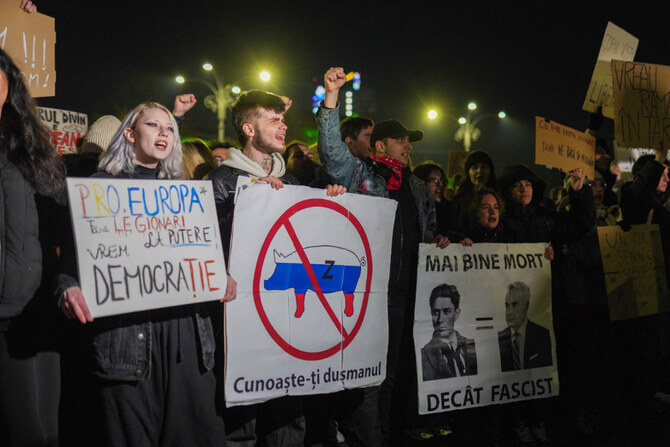Romanians went to the polls to elect a new parliament on Sunday, with the extreme right expected to win, perhaps signalling a shift in the NATO country’s foreign policy towards Ukraine.
The legislative election takes place at a time of political instability, precipitated by a high court order to recount the first round of the separate presidential election on November 24.
Calin Georgescu, a lesser-known far-right supporter of Russian President Vladimir Putin, won the presidential election. A run-off election is scheduled for December 8.
Despite allegations of Russian influence and TikTok intervention, the parliamentary elections took place as scheduled on Sunday.
Polling stations opened at 7:00 a.m. (0500 GMT) and will close at 9:00 p.m., with an exit poll released shortly after.
The first official results should be available later this evening. Florentina Noja, a 55-year-old engineer, stated that she voted for “some young” candidates who were “a little less indoctrinated by the current system.”.
“We have to try to start over,” she told AFP in Bucharest.
She noted that she hoped for “more transparency and less corruption” but was concerned that Romania would deviate from its pro-European path.
For the last 30 years, two major parties have influenced Romania’s political scene.
However, many expect that Sunday’s vote will result in a fractured parliament, which will affect the chances of creating a future administration.

According to polls, some far-right groups opposed to giving aid to Ukraine are expected to receive more than 30% of the vote.
So far, the country of 19 million people has resisted the region’s burgeoning nationalism.
Nevertheless, experts say it is currently in an unusual scenario since the fall of Communism in 1989, as resentment over rising prices and worries of being drawn into Russia’s war in neighbouring Ukraine have grown.
George Sorin, a 45-year-old economist in Bucharest, told AFP he expected the extreme right to perform well.
He claimed that the outgoing parliament had only served Ukraine’s interests by delivering aid and had emphasised the European Union over “national interests.”
The far-right parties include the AUR, which is now dominating surveys and whose leader, George Simion, received about 14% of the presidential vote.
There is also the extreme-right SOS Romania party, led by Diana Sosoaca, and the newly formed Party of Young People (POT), which has the potential to surpass the five-percent barrier for parliamentary representation.
In the opposing pro-EU camp, the centrist USR aims to do well after their leader Elena Lasconi finished second in the presidential election.


